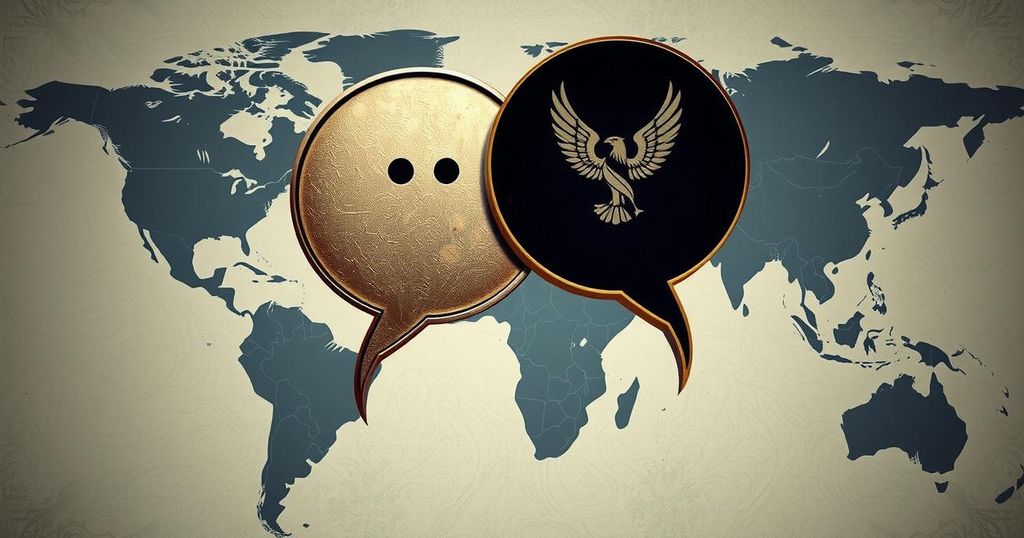Escalating Tensions Between South Africa and Rwanda Over DRC Crisis

Recent tensions between South African President Cyril Ramaphosa and Rwandan President Paul Kagame have escalated, as Ramaphosa accused Rwanda of supporting the M23 rebels in Congo. Kagame dismissed the claims and warned of possible confrontations, while South African troops face casualties amid rising violence. Diplomatic efforts continue as both nations position themselves regarding the ongoing conflict over mineral-rich eastern Congo.
Rwandan President Paul Kagame has publicly responded to accusations from South African President Cyril Ramaphosa regarding Rwanda’s alleged support for the M23 rebels, implicated in the ongoing strife in the eastern Democratic Republic of Congo. Kagame characterized Ramaphosa’s assertions as fabrications and cautioned against potential confrontations between the two nations. This exchange comes on the heels of South Africa’s troop presence in the DRC amid rising tensions following the loss of South African soldiers in combat.
The conflict has intensified with the M23, a group widely believed to be backed by Rwanda, gaining ground and capturing parts of Goma in North Kivu province. Ramaphosa has attributed the casualties among South African forces to this militia, whom he labeled a “Rwandan Defense Force militia,” escalating tensions with Rwanda further. Defense Minister Angie Motshekga echoed this sentiment by issuing a warning to the M23 fighters, claiming that their actions could be interpreted as a declaration of war.
In his rebuttal, President Kagame insisted that the Rwandan Defense Force is not a militia and asserted, “If South Africa prefers confrontation, Rwanda will deal with the matter in that context any day.” He challenged Ramaphosa’s characterization of the South African troops as peacekeepers, arguing instead that the SADC forces were engaged in offensive operations as part of their mission in eastern Congo.
South African Foreign Minister Ronald Lamola has firmly placed the blame on Rwanda for supporting the M23, referencing reports from United Nations experts validating these claims. He emphasized South Africa’s participation in collective African diplomatic efforts, which sought an immediate ceasefire and an end to hostilities, as well as cessation of support for the M23 militia from external forces.
Eastern Congo, which is rich in natural resources, has endured significant turmoil over the last three decades, stemming from historical tensions that trace back to the 1994 Rwandan genocide. The Congolese government has accused Rwanda of pursuing its interests in the region, particularly exploiting its vast mineral wealth, while Rwanda cites security concerns linked to groups that fled across the border following the genocide.
The ongoing diplomatic dispute between South Africa and Rwanda centers on the conflict in the eastern Democratic Republic of Congo, which has historical roots in the Rwandan genocide and its aftermath. Following the 1994 genocide, many perpetrators fled to Congo, leading to severe repercussions for both nations. The M23 rebellion has intensified calls for accountability and has drawn in neighboring countries, adding complexity to the already fragile peace in the region.
The increasingly hostile exchange between the leaders of South Africa and Rwanda highlights the fragile nature of regional relations as accusations intensify amid ongoing violence in eastern Congo. With both countries accusing one another of exacerbating the conflict, the prospect of confrontation raises serious concerns for stability in the DRC. Moving forward, diplomatic efforts will be crucial in mitigating hostilities and addressing the underlying issues propelling this long-standing conflict.
Original Source: www.voanews.com








